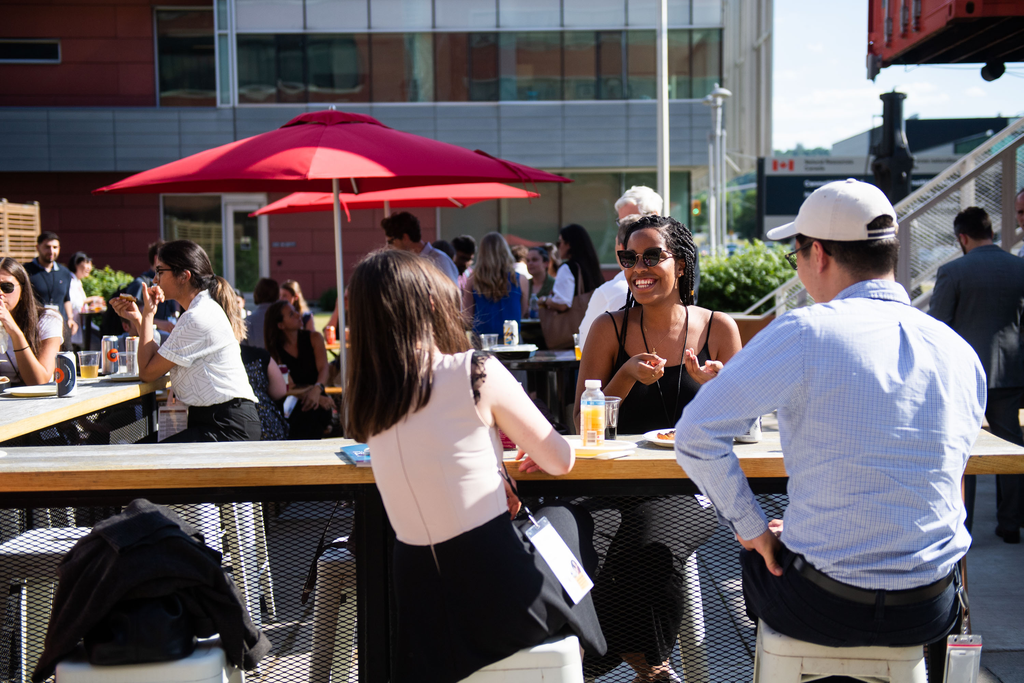MIRA Trainee Network
Interdisciplinary peer connections and learning are central to the MIRA Trainee Network. All McMaster trainees are welcome.
Succeeding together
The MIRA Trainee Network connects trainees from across all six McMaster Faculties — creating an opportunity for interdisciplinary exchange and networking. Through the network, trainees discuss challenges and opportunities related to their research on aging, gain interdisciplinary perspectives on their work and learn about potential future careers. All are welcome — the MIRA Trainee Network includes undergraduate and graduate students and postdoctoral fellows interested in aging research.
The network hosts events and activities supporting McMaster trainees interested in aging research. Events include trainee poster sessions, community research fairs, interdisciplinary knowledge translation and exchange, networking and speed mentoring, and our regular meetings. Join the MIRA Trainee Network and connect with fellow McMaster trainees who are interested in advancing the field of aging research.
Trainee Insights
Upcoming Trainee Events
-
#MIRATraineeTalks
Date:November 6 2025Time:12:00 PM – 2:00 PM
Join the MIRA Trainee Network
Connect with your fellow McMaster students and postdoctoral fellows advancing the field of aging research.
Join today
